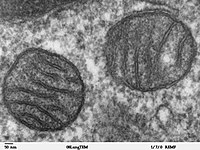
Temporal variability of regional intrinsic neural activity in drug‐naïve patients with obsessive–compulsive disorder
Sign Up to like & getrecommendations! Published in 2021 at "Human Brain Mapping"
DOI: 10.1002/hbm.25465
Abstract: Obsessive–compulsive disorder (OCD) displays alterations in regional brain activity represented by the amplitude of low‐frequency fluctuation (ALFF), but the time‐varying characteristics of this local neural activity remain to be clarified. We aimed to investigate the… read more here.
Keywords: ocd patients; variability; drug; dalff ... See more keywords

Modifications of cognitive performance in the stroop task following deep rTMS treatment course in OCD patients
Sign Up to like & getrecommendations! Published in 2021 at "Brain Stimulation"
DOI: 10.1016/j.brs.2020.11.008
Abstract: Adaptive decision making requires the adjustment of behavior following an error in order to improve future performance, but obsessive compulsive disorder (OCD) patients are characterized by abnormal error monitoring [1,2]. For example, in cognitive tasks… read more here.
Keywords: task; ocd patients; error; stimulation ... See more keywords

Checking and washing rituals are reflected in altered cortical thickness in obsessive-compulsive disorder
Sign Up to like & getrecommendations! Published in 2019 at "Cortex"
DOI: 10.1016/j.cortex.2019.03.012
Abstract: There is growing evidence for structural brain alterations in obsessive-compulsive disorder (OCD). The overall picture is however rather heterogeneous. To detect meaningful associations between clinical symptom profiles and structural alterations, we applied a classification approach,… read more here.
Keywords: compulsive disorder; obsessive compulsive; ocd patients; cortex ... See more keywords

Functional connectivity within the salience network differentiates autogenous- from reactive-type obsessive-compulsive disorder
Sign Up to like & getrecommendations! Published in 2020 at "Progress in Neuro-Psychopharmacology and Biological Psychiatry"
DOI: 10.1016/j.pnpbp.2019.109813
Abstract: BACKGROUND Obsessive-compulsive disorder (OCD) is a clinically heterogeneous condition. To better understand and treat patients, symptomatology of OCD has been categorized into more homogenous symptom dimensions. The autogenous-reactive classification model has proven helpful in the… read more here.
Keywords: network; obsessive compulsive; ocd patients; autogenous reactive ... See more keywords

Disassociation of cognitive and affective aspects of theory of mind in obsessive-compulsive disorder
Sign Up to like & getrecommendations! Published in 2017 at "Psychiatry Research"
DOI: 10.1016/j.psychres.2017.06.058
Abstract: Impairment in social functioning has been widely described in obsessive-compulsive disorder (OCD). However, several aspects of social cognition, such as theory of mind (ToM), have not been substantially investigated in this context. This study examined… read more here.
Keywords: cognitive affective; compulsive disorder; obsessive compulsive; ocd patients ... See more keywords

Impulsivity and decision-making in obsessive-compulsive disorder after effective deep brain stimulation or treatment as usual
Sign Up to like & getrecommendations! Published in 2018 at "CNS Spectrums"
DOI: 10.1017/s1092852918000846
Abstract: Objective Impulsivity and impaired decision-making have been proposed as obsessive-compulsive disorder (OCD) endophenotypes, running in OCD and their healthy relatives independently of symptom severity and medication status. Deep brain stimulation (DBS) targeting the ventral limb… read more here.
Keywords: decision; ocd patients; treatment; dbs ... See more keywords

Concentrated ERP Delivered in a Group Setting: A Replication Study
Sign Up to like & getrecommendations! Published in 2017 at "Behavioural and Cognitive Psychotherapy"
DOI: 10.1017/s1352465817000091
Abstract: Background: In a previous effectiveness study (Havnen et al., 2014), 35 obsessive compulsive disorder (OCD) patients underwent Concentrated Exposure Treatment (cET), which is a newly developed group treatment format delivered over four consecutive days. Aims:… read more here.
Keywords: ocd patients; treatment; group; study ... See more keywords

Performance in delayed non-matching to sample task predicts the diagnosis of obsessive–compulsive disorder
Sign Up to like & getrecommendations! Published in 2019 at "Translational Psychiatry"
DOI: 10.1038/s41398-019-0667-3
Abstract: Electrical stimulation studies have recently evidenced the involvement of orbitofrontal cortex (OFC) in obsessive–compulsive disorder (OCD). In addition, lateral OFC is activated in healthy subjects during delayed non-matching-to-sample task (DNMS). In the present study, we… read more here.
Keywords: task; compulsive disorder; obsessive compulsive; ocd patients ... See more keywords

The effects of the COVID-19 pandemic on patients with obsessive-compulsive disorder
Sign Up to like & getrecommendations! Published in 2022 at "International Journal of Psychiatry in Clinical Practice"
DOI: 10.1080/13651501.2022.2082984
Abstract: Abstract Objective Little is known about the impact of the COVID-19 pandemic on obsessive-compulsive disorder (OCD). The main aim of this study was to investigate how the pandemic has affected OCD patients and the relationship… read more here.
Keywords: ocd patients; compulsive disorder; covid pandemic; obsession ... See more keywords

Causal attributions and OCD treatment response: A linguistic analysis of OCD patients' self-reported etiological explanations in intensive residential treatment.
Sign Up to like & getrecommendations! Published in 2022 at "Scandinavian journal of psychology"
DOI: 10.1111/sjop.12896
Abstract: In the present study, 43 obsessive-compulsive disorder (OCD) patients receiving cognitive-behavior therapy (CBT)/exposure and response prevention (ERP) in an intensive residential treatment program responded to an open-ended question about causal attributions (i.e., personal explanations for… read more here.
Keywords: ocd patients; residential treatment; causal attributions; intensive residential ... See more keywords

Eveningness is associated with poor sleep quality and negative affect in obsessive–compulsive disorder
Sign Up to like & getrecommendations! Published in 2018 at "Journal of Behavioral Addictions"
DOI: 10.1556/2006.7.2018.07
Abstract: Background Obsessive–compulsive disorder (OCD) is characterized by intrusive thoughts and repetitive behaviors that severely encumber daily functioning. OCD patients seem to exhibit sleep disturbances, especially delayed bedtimes that reflect disrupted circadian rhythmicity. Morningness–eveningness is a… read more here.
Keywords: quality; compulsive disorder; obsessive compulsive; ocd patients ... See more keywords